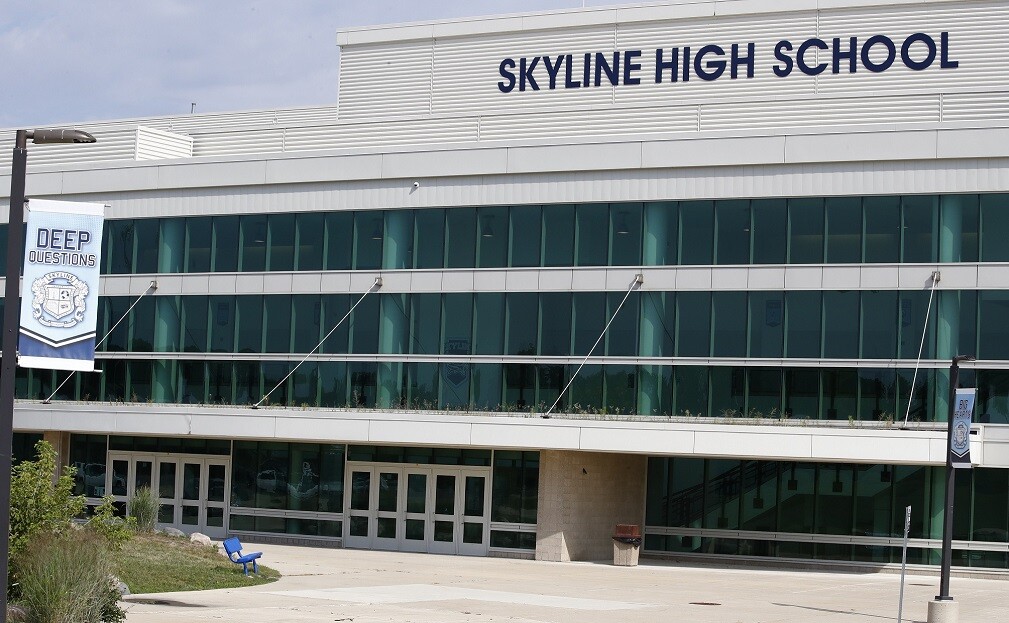Washtenaw Superintendents’ Association Issues Statement on COVID-19 Vaccinations for Educators

Washtenaw County – In response to our ongoing frustration and the recent Michigan Education Association (MEA) report that only 25.6% of Washtenaw County educators who responded to their survey have received at least one dose of the COVID-19 vaccine, the Washtenaw Superintendents’ Association (WSA) is issuing a statement calling for additional vaccine supplies for educators in Washtenaw County.
WSA represents the superintendents of the Washtenaw Intermediate School District and the nine public school districts in Washtenaw County: Ann Arbor Public Schools, Chelsea School District, Dexter Community Schools, Lincoln Consolidated Schools, Manchester Community Schools, Milan Area Schools, Saline Area Schools, Whitmore Lake Public Schools and Ypsilanti Community Schools. Their statement reads:
The WSA believes that, in a community that deeply values education, the breakdown in coordination between the federal, state, and local vaccination rollouts at the local levels is alarming. While we are deeply appreciative of the consistent partnership and direct collaboration with the Washtenaw County Health Department since this pandemic began in March 2020, we recognize that the lack of collaboration and transparency across all levels of decision-making has caused delays, inconsistencies, and inequitable access to vaccinations for educators.
According to the MEA’s report, some counties have nearly 90% of their educators vaccinated, while Washtenaw’s 25.6% vaccination rate ranks at the very bottom of their list. As the home of Michigan’s fourth largest public school district and nine additional districts representing over 13,500 school employees responsible for educating more than 46,000 students, we are deeply disappointed that vaccines allocated to Washtenaw County have not been administered in a way that keeps our students, families, and staff safe during this unprecedented pandemic.
However, we call attention to the fact that the state’s stringent stipulations dictating how new first dose vaccines are allocated disproportionately impacts our highest need, most diverse school districts that teach our most diverse and often most vulnerable learners. By calling for the expansion of in-person instruction in these districts, the state is disproportionately putting low-income students and students of color at risk for additional harm and further exacerbating inequities in both education and health.
Schools have repeatedly been called on to re-open and expand face-to-face learning opportunities, despite the inadequate allocation of financial and vaccination resources necessary to do so safely. If getting more students back to school is a priority, then vaccinating teachers must also be a priority. While vaccination is not the only risk mitigation strategy, it is one of our strongest and most effective. In the United States alone, this virus has infected more than 27.9 million and taken the lives of more than 490,000 people. Schools need systemic support in order to be part of the solution in minimizing the spread of COVID-19.
Today, we issue the following calls to action:
- We call on our federal, state and local officials to do more than simply say schools must be prioritized – the leaders who call for the further reopening of schools must allocate the financial resources and vaccination supplies necessary to safely re-open, expand, and sustain in-person instruction.
- We call on the federal, state, and local health departments and government offices to work in coordination and collaboration with school districts to develop vaccination plans that are responsive to each community’s local context and school reopening plans.
- We call on local Washtenaw County leaders to continue to keep equity at the center of everything we do, including our vaccination efforts. This is an opportunity to put our commitment to educational and health equity into action by making decisions with race, poverty, and social vulnerability as a priority.
- We call on our parents and community members to contact their elected officials, including county commissioners, state legislators, and members of Congress, as well as Governor Whitmer’s Office, and the Michigan Department of Health and Human Services, to share how this issue directly impacts you, your family, and our community.
To all of our students, families, staff, and community members, our commitment to our school community is not limited solely to our students’ education, but also extends to the health, well-being and safety of everyone impacted by our school system. We will remain steadfast in our advocacy and dedication to expanding face-to-face opportunities for students safely. While we are amazed at how our educators have moved mountains to provide fully remote, hybrid, and fully in-person instruction for our students and families this past year, we look forward to the day when we can safely see all our students in our classrooms together.
Washtenaw County superintendents have taken every opportunity to collectively advocate on behalf of our school communities at the local, state, and federal levels. This includes direct engagement with elected officials, university leaders, and hospital system administrators. We have initiated and maintained consistent collaboration with our local health department. We appreciate everyone who has extended support. We have consistently offered every resource available, including staff and other support, and have supported two pop-up vaccination clinics for educators staffed with school nurses and school volunteers. We stand ready to help scale and support additional clinics as more doses become available.
At this point, school staff serving our highest need students with special needs and those over the age of 50 are still receiving their invitations to vaccinate. This represents 28% of school staff. Whether we are fully in-person, hybrid, or fully remote, we all feel the urgency to do everything we can to reduce the risk for students and staff, which includes increasing our vaccination rate.

























